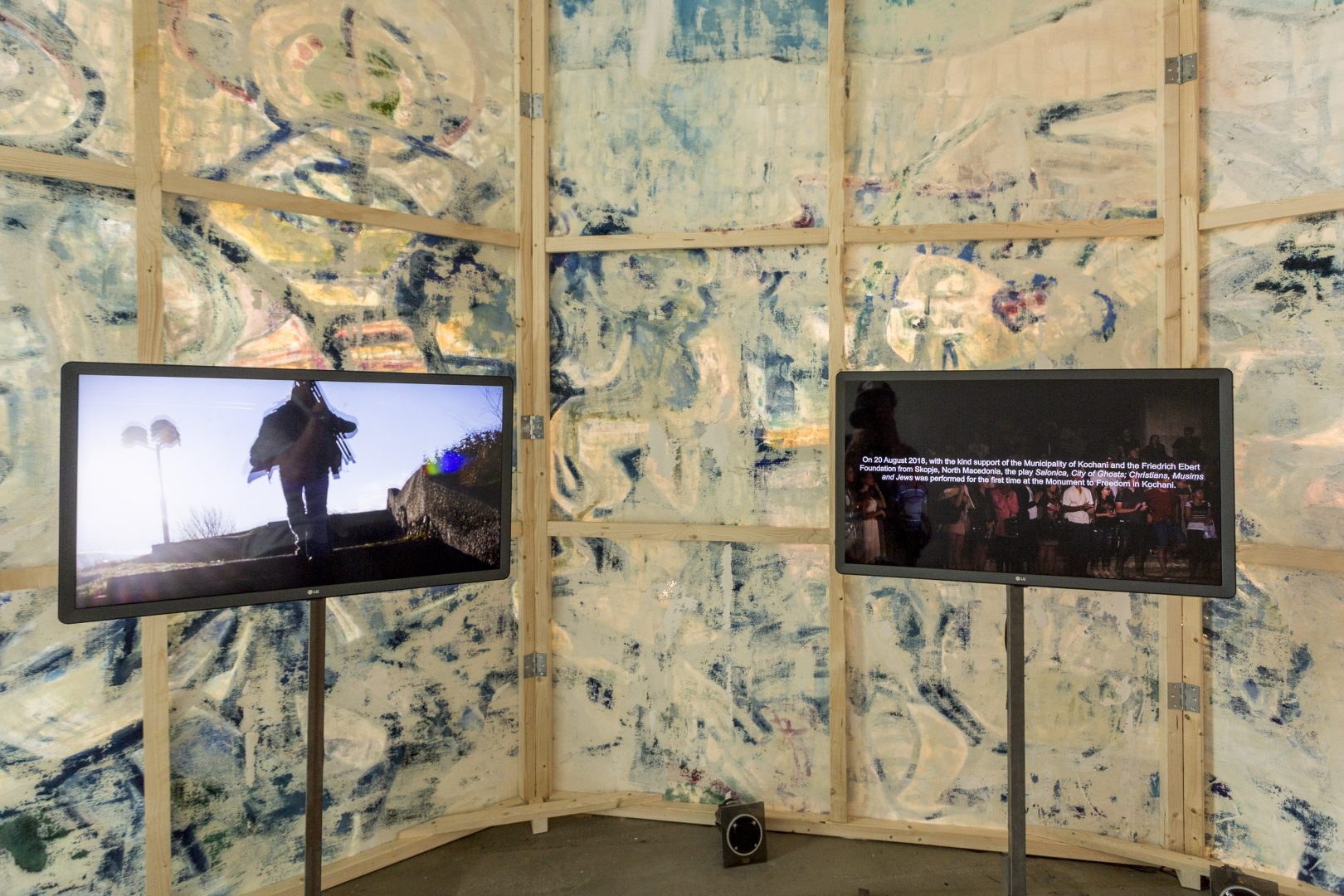The Open Call for the Social Art Award 2019 under the topic “We are the People – Peaceful Revolutions” was closed on December 15, 2019. We are very impressed by 558 submissions that were contributed by artists coming from 65 countries across all continents.
The winners of The Social Art Award 2019 are Narcissa Gold (USA), Melinda Mouzannar (Lebanon) and Bogna Grazyna Jaroslawski (Poland/Germany). The Honorary Mention goes to Kingson Kin Sing Chan (Hong Kong/UK).
Below you find the artworks, that passed the initial jury round. The public voting took place till 30 December and is a tool to give more public visibility to the topic and the artworks. It does not replace the final jury judgment. There were two wildcards for the most voted artworks that entered the final shortlist.
The focus diversity of applications shows that artists are active in the multi-faceted fields of socially engaged art reflecting on wars, genocides, femicides, traumata, violence against refugees, children, women, men, disabled people, LGBTIQs, animals. They share feelings for the planet and its living species, but also showing hopelessness due to complex crises be it climate change (e.g. in regard to water pollution), capitalism, corruption, a violation against human rights, nature, protected national parks. Many of the artists are constantly trying to give a voice to the poorest or empower unheard social groups.
It’s not only about peaceful revolutions, but it’s also about feeling a deep connection and showing love and respect for each other.
Thank you all for sharing your great and inspirational work and look at all the great contributions!
Fatherland - A Monument to Freedom
Elena Chemerska
open category
Behind the paravan painting, two documentary videos are playing. The first video shows a conversation focusing on the current state of the Monument to Freedom, the role of the artist in today’s society, relationship between the individual and the collective and the loss of the collective. The second, richer with oxygen, depicts a theater play performed at the same monument. The audience is happy, the setting is generous. If the first video talks about the fear of forgetting the idea of freedom reflected in the poor physical state of the monument, the second shows raw potential of people willing to come together in the name of a good idea. The book “Monument to Freedom - Conversation”, published by PrivatePrint, is a documentary project consisted of interviews about the Monument to Freedom, focused on its artistic, architectural, and socio-cultural aspects. The book includes articles and essays connected to the monument, as well as archival and visual material. It is bilingual, Macedonian and English. Interviews and essays in the book: Radovan Ragjenovikj, Gligor Čemerski, Stevan Stanić, Ilija Penušliski, Danica Pavlovska, Kosta Balabanov, Nebojša Vilikj, Aneta Hristova - Popovska, Antoanela Petkovska, Sanja Horvatinčić, Boris Petkovski, Vladimir Martinovski. Installation view, 2019, Master Institute of Visual Cultures, 's-Hertogenbosch, The Netherlands. How can art catalyze change?: I believe that artists can catalyze change by understanding and carefully and restlessly working with their subject, and through this work, provoke thought and discover in and with the viewer, the points of self-identification and compassion with the subject. Compassion leads to the desire for change, the next step is agency.
Behind the paravan painting, two documentary videos are playing. The first video shows a conversation focusing on the current state of the Monument to Freedom, the role of the artist in today’s society, relationship between the individual and the collective and the loss of the collective. The second, richer with oxygen, depicts a theater play performed at the same monument. The audience is happy, the setting is generous. If the first video talks about the fear of forgetting the idea of freedom reflected in the poor physical state of the monument, the second shows raw potential of people willing to come together in the name of a good idea. The book “Monument to Freedom - Conversation”, published by PrivatePrint, is a documentary project consisted of interviews about the Monument to Freedom, focused on its artistic, architectural, and socio-cultural aspects. The book includes articles and essays connected to the monument, as well as archival and visual material. It is bilingual, Macedonian and English. Interviews and essays in the book: Radovan Ragjenovikj, Gligor Čemerski, Stevan Stanić, Ilija Penušliski, Danica Pavlovska, Kosta Balabanov, Nebojša Vilikj, Aneta Hristova - Popovska, Antoanela Petkovska, Sanja Horvatinčić, Boris Petkovski, Vladimir Martinovski. Installation view, 2019, Master Institute of Visual Cultures, 's-Hertogenbosch, The Netherlands. How can art catalyze change?: I believe that artists can catalyze change by understanding and carefully and restlessly working with their subject, and through this work, provoke thought and discover in and with the viewer, the points of self-identification and compassion with the subject. Compassion leads to the desire for change, the next step is agency.



